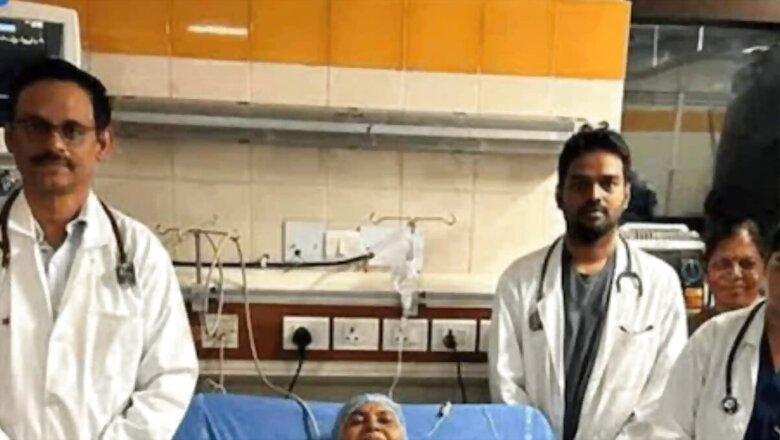
views
Heart specialists at Hyderabad’s Nizam Institute of Medical Sciences (NIMS) performed a rare medical treatment on a 67-year-old patient. In the first of its kind in a Telangana government hospital, minimally invasive Transcatheter Mitral Valve Replacement (TMVR) was carried out on a patient named Devamma from Jagityala district.
She underwent open heart surgery in 2015 to replace the mitral valve. She was eventually informed by physicians that her blocked mitral valve was the cause of serious health issues. Following a review of Devamma’s medical records and taking into account her old age, the team of NIMS cardiologists chose to execute the procedure using TMVR, a minimally invasive method that replaces the damaged mitral valve without requiring open heart surgery.
During the operation, a flexible, hollow catheter is inserted through a small incision in the groin through a local blood vessel which is used to replace the mitral valve reaching the heart.
The procedure to replace the mitral valve in NIMS using a catheter, according to doctors, was the first of its kind. An open heart surgery was thought to be risky for her since Devamma is 67 years old.
Dr Satish Rao, Manikrishna, Harish Reddy, Pradeep, Sadanand and Mehrunnisa conducted this medical procedure under the supervision of Dr B Srinivas, Head of the Cardiology Department, NIMS. The doctors said that the government has provided financial assistance through the CM Relief Fund.
TMVR is a two- to three-hour inpatient procedure. To make you more comfortable, anaesthesia is administered. An interventional cardiologist, interventional echocardiography, and an anaesthetic expert make up the TMVR team.
The team attaches you to a piece of electrocardiogram equipment to check your heart’s electrical activity before starting the treatment. Also, you are attached to devices that monitor your blood pressure, oxygen levels, heart rate and respiration. When you recover, you might spend one night in the intensive care unit (ICU). One can expect a three to five-day stay in the hospital.
Read all the Latest India News here




















Comments
0 comment